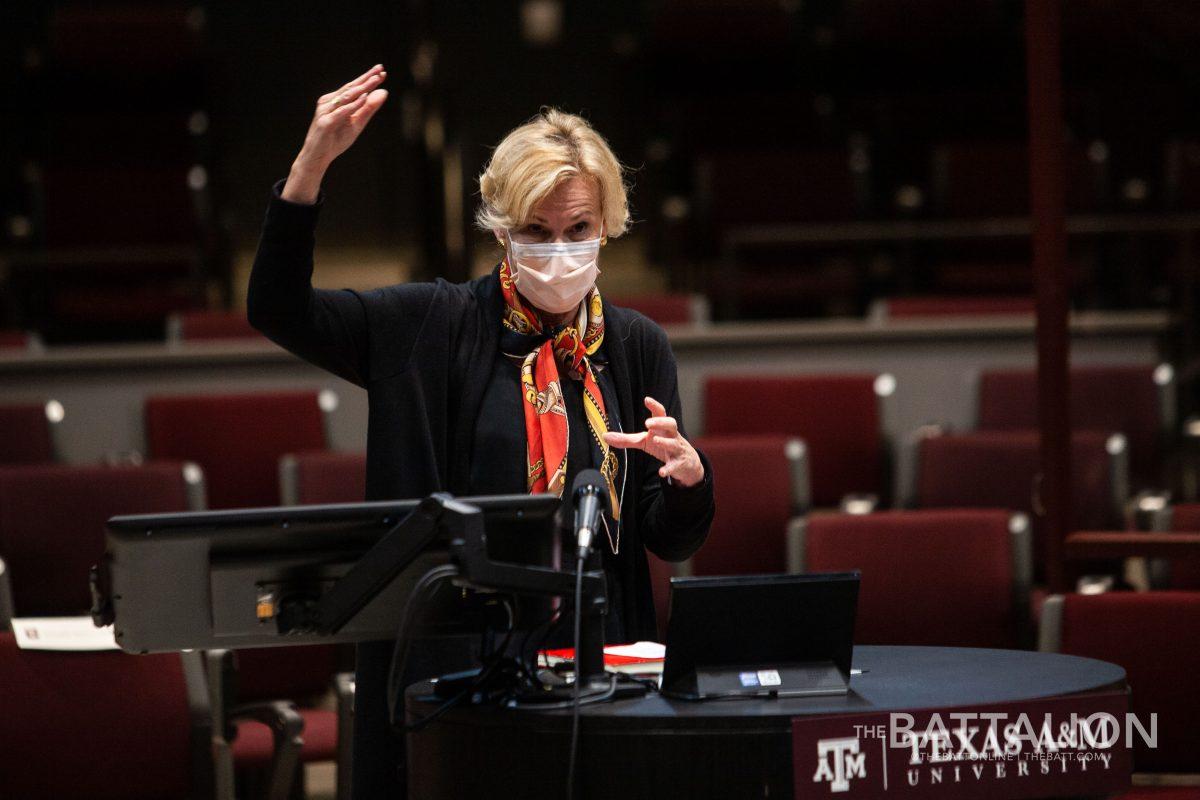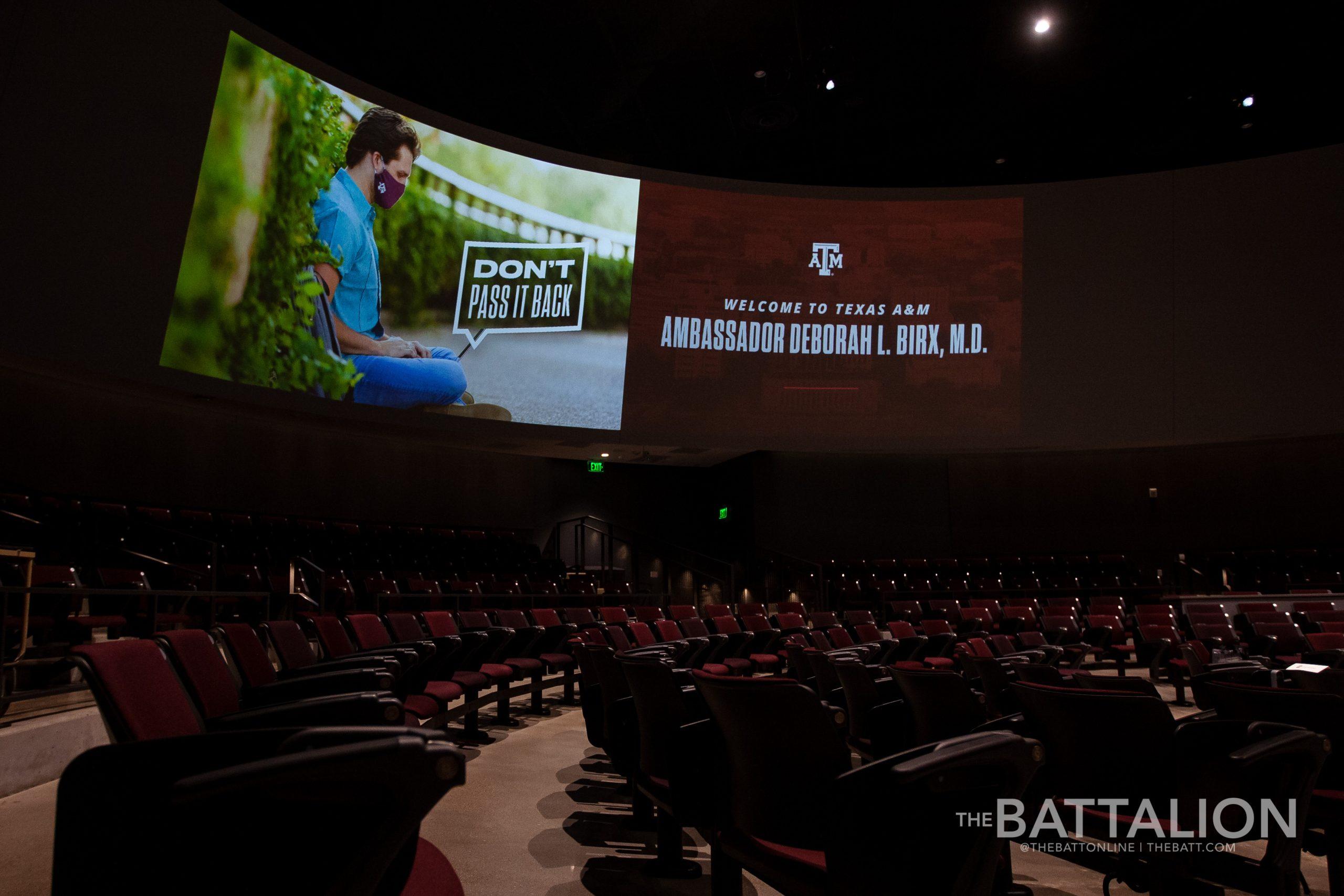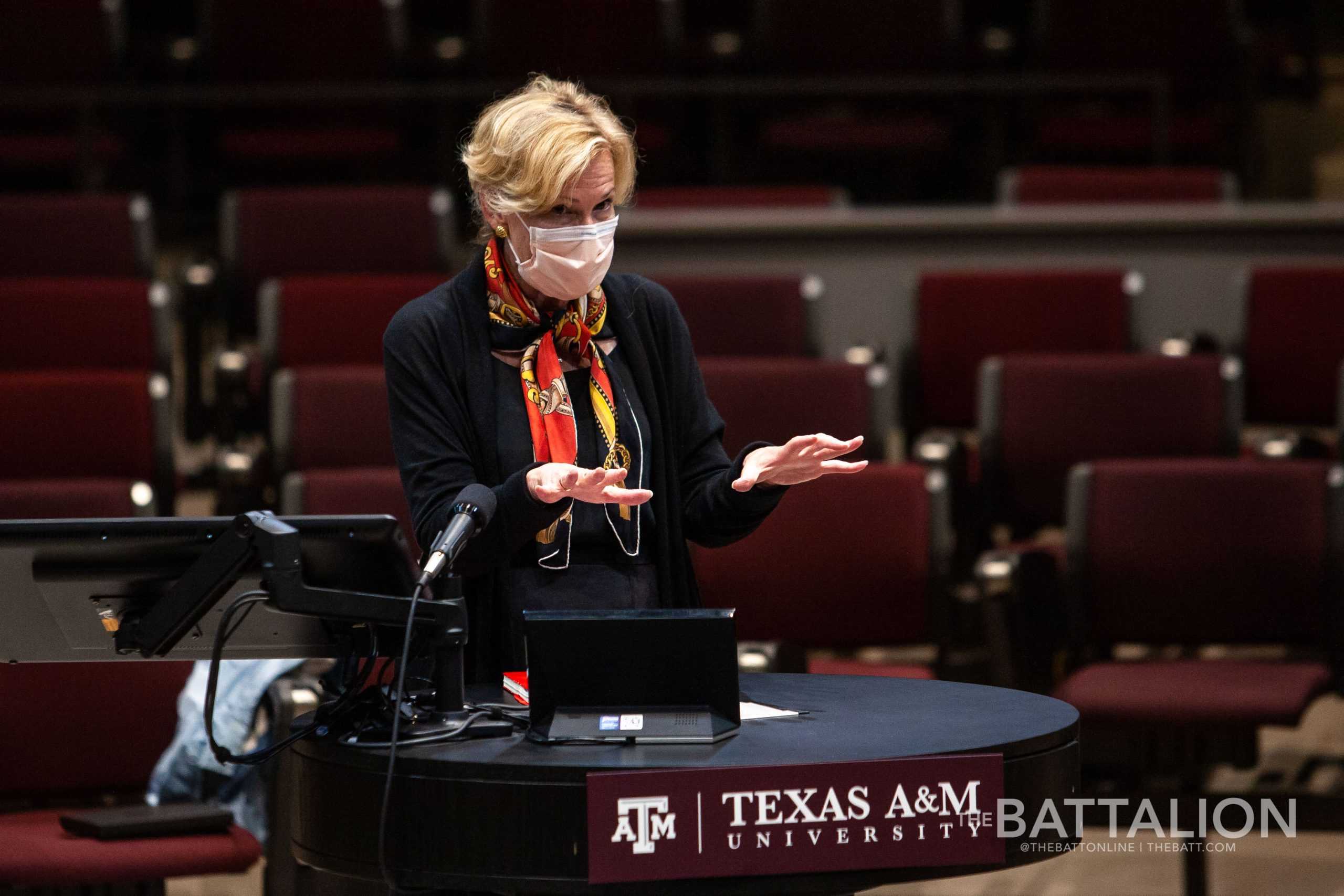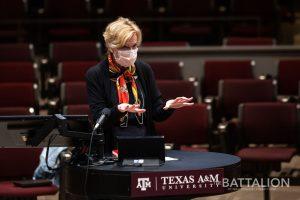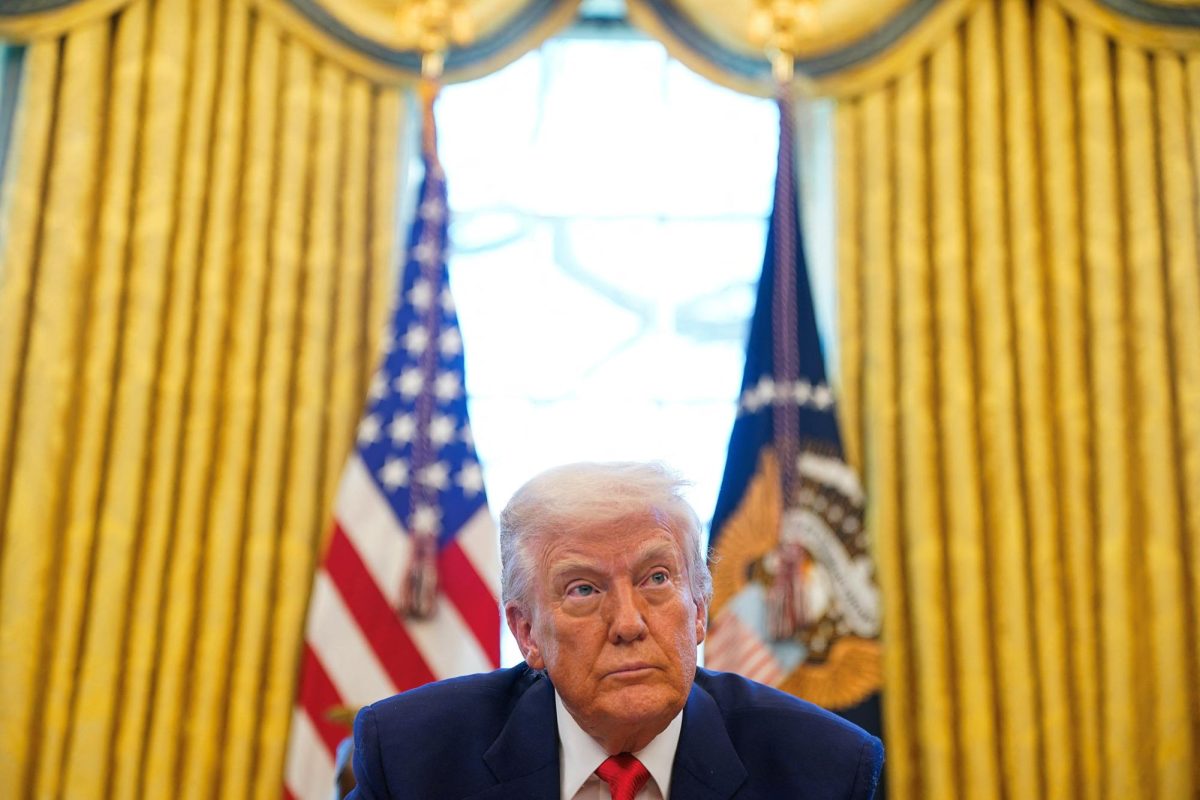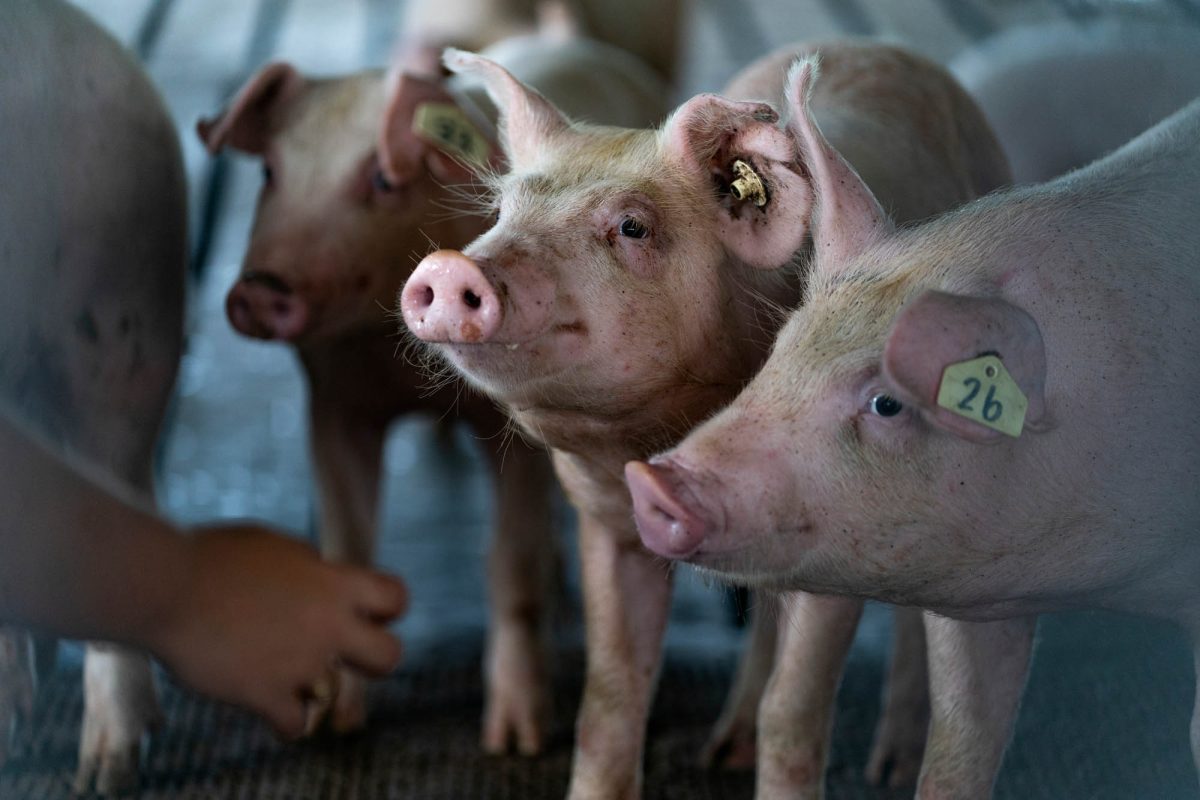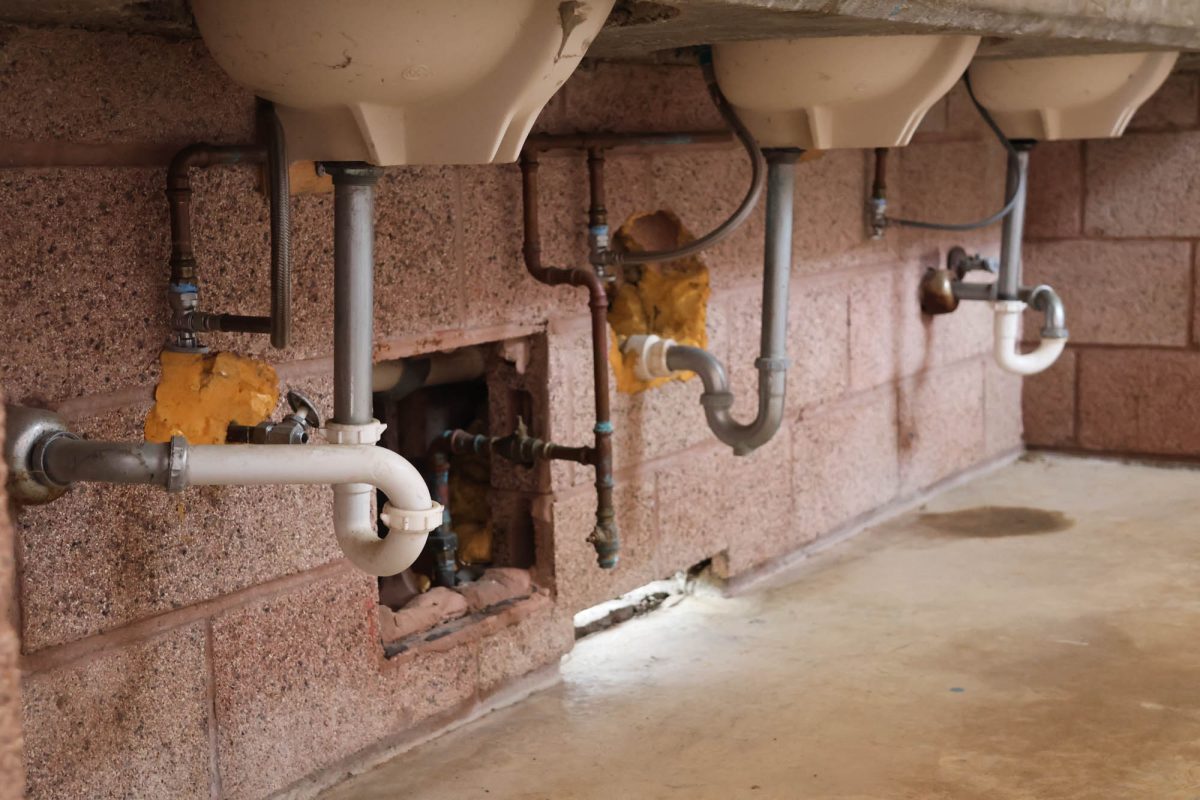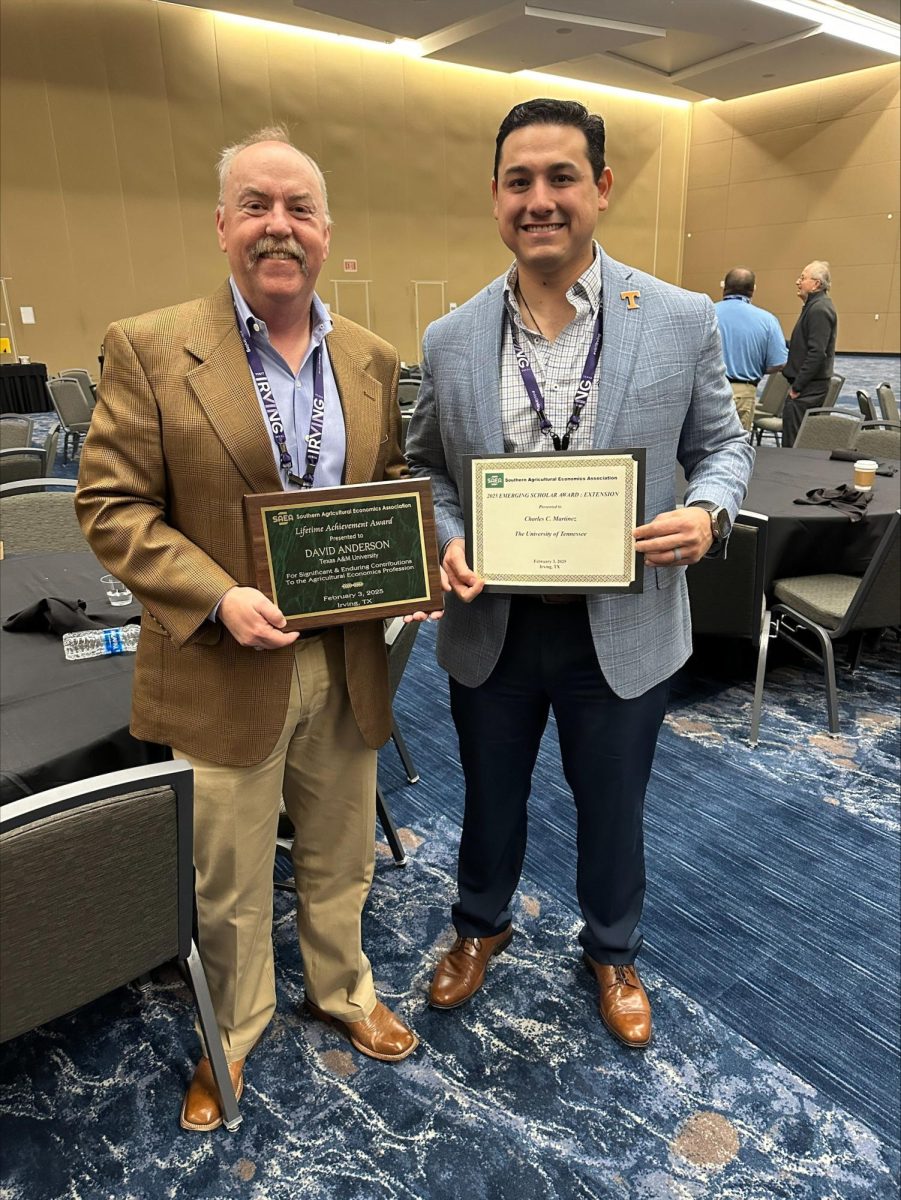United States Global HIV/AIDS Coordinator and U.S. Special Representative for Global Health Diplomacy Dr. Deborah Birx visited A&M for a press briefing discussing COVID-19 in universities.
Currently, Birx serves as the coronavirus response coordinator, working on the White House Coronavirus Task Force since February this year. The Sept. 22 briefing took place on campus in the 21st Century Classroom Building, following Birx’s introduction to members of A&M and a tour of COVID-19 testing and vaccine facilities in College Station. She was joined at the briefing by System Chancellor John Sharp and President Michael K. Young.
Sharp began the briefing by welcoming Birx and followed by giving an update on COVID-19’s presence in A&M’s 11 system schools.
“[There are] an awful lot of roles at Texas A&M and A&M system in place with regard to coronavirus and the $14 million dollars of testing that we do in our system and our Health Science Center,” Sharp said.
Next, Young discussed Birx’s comments about the way A&M has been responding to the pandemic since March.
“I also appreciate [Birx’s] comments that the university seems to be surrounding this perhaps well,” Young said. “We appreciate that insight, as well.”
The floor was then opened up for Birx to speak, followed by a question and answer session. Birx commented on the speed in which the testing and vaccine facilities were established on campus and in College Station in response to the pandemic.
“We’re used to the independence of Texas, but I think what I witnessed today, from both the students, the faculty, and frankly the community, is a sense that independence linked to selfless respect for others,” Birx said.
Birx said A&M has one of the lowest infection rates that she has seen among universities. Additionally, she found that A&M students treated the Bryan-College Station community much like how they treated family, with selfless service.
“We like to call it now, physical distancing with social interaction,” Birx said. “People can understand the need to be together socially, but physically distant. The linking of this behavior to their core, fundamental values at this institution relate to respect for others.”
Among the 15 universities Birx has visited so far, she said there were different beneficial practices and techniques for preventing the spread of COVID-19. She also said like other schools, A&M has done well due to the faculty’s quick response to the virus after the outbreak in spring 2020.
“[We are] really trying to compile for the institutions of higher education, what is the secret sauce?” Birx said. “And our secret sauce it seems, so far, across all the universities that have been able to open and stayed open, is they spent the spring and summer working together, learning together.”
Birx also commented on the fact that most of the individuals who have died from COVID-19, had underlying factors that made them more susceptible to it. Birx said the main issue in creating a vaccine is finding one that accommodates all demographics, especially ones that are more at risk.
“We obviously want to vaccinate [susceptible] individuals as soon as possible to protect them from this virus,” Birx said. “What we need to have [is] a vaccine that is efficacious and safe in that group, and that’s really what will determine when they will be immunized.”
A major factor in determining how and when a vaccine will become available, according to Birx, is how many of the vaccines scientists are working on now will work, and how many doses of the right vaccine will be available. She then referred to the six different types of vaccines scientists are working on now.
“We have, on paper, enough vaccines to immunize everyone. The question is [whether] all six candidates work,” Birx said. “Some of these candidates… can produce a lot quickly and some of them produce a certain other amount per month.”
Assistant Professor for the School of Public Health Rebecca Fischer said future events, such as the upcoming Vanderbilt game, might impact that status of COVID-19 on campus.
“I’m hopeful and then curious to see how that’s going to play out on the other side,” Fischer said. “If we do have cases that originate from social gatherings that surround that football game, or other sporting events, then we would expect to see those show up.”
Fischer said she remains hopeful because of the students’ reception to the COVID-19 guidelines and safety suggestions.
As of Sept. 19 there are 311 active cases among A&M faculty, students and staff. For more information on COVID-19’s campus presence, visit the A&M COVID-19 Dashboard.
White House coronavirus response coordinator visits A&M
September 22, 2020
Photo by Photo by Meredith Seaver
Dr. Deborah Birx, the White House coronavirus response coordinator, visited the College Station vaccine facility and spoke with campus leaders before briefing the press on Sept. 22.
0
Donate to The Battalion
$2790
$5000
Contributed
Our Goal
Your donation will support the student journalists of Texas A&M University - College Station. Your contribution will allow us to purchase equipment and cover our annual website hosting costs, in addition to paying freelance staffers for their work, travel costs for coverage and more!
More to Discover




